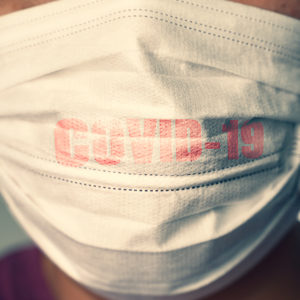The question of how quickly to reopen the economy is not, as irritating hot takes would suggest, “choosing money over lives” or “Wall Street over people.”
Whatever one thinks of President Trump or of any of the 50 state governors, every one of them has been thrust into the position of conductor on the Trolley Problem from Hell. They’re all choosing lives versus lives in the most rapid-fire, improvisational, gut-wrenching exercise any of them ever faced.
The “Trolley Problem” is a thought exercise introduced in 1967 by British philosopher Philippa Foot (with antecedents dating from antiquity).
Here’s an example: You’re the conductor on a runaway trolley, about to kill five men working on the tracks. You can pull a lever to divert the trolley onto a side track, where it will kill a pedestrian not currently in danger.
The conundrum is whether you’re morally justified in sacrificing the innocent pedestrian to save a larger number of people. Professors of philosophy, law and economics love adding complications. Suppose the pedestrian is your child or a researcher on the verge of developing a COVID-19 cure?
On an episode of NBC-TV’s “The Good Place,” an indecisive character in the afterlife repeatedly finds himself driving a runaway trolley while his tormentor adds increasingly elaborate complications. Today, the president, plus every governor and mayor, is in a parallel position. It’s lives versus lives. (And concerning presidents-as-trolley-
Open the economy fully and immediately and we’ll likely see a spike in COVID-19 deaths. Continue the lockdown and different people will die just as certainly.
With each additional day of closure, more Americans tumble into poverty, and statisticians can predict the resulting deaths as easily (and perhaps as accurately) as they can predict COVID-19 deaths resulting from reopening.
With the shutdown, Americans delay cancer screenings and treatments; deaths will result. Income may influence morbidity and mortality more than health care does, and bankruptcies will foment a predictable sequence of suicides, deaths from substance abuse, and stress-related heart attacks and strokes. (Both of my grandfathers died in the 1930s after losing their life savings. One was a 49-year-old who suffered a massive stroke.)
With continued shutdown, some physician practices and hospitals will fail, reducing life-giving care available to Americans. Plummeting incomes will starve federal, state and local governments of revenues that fund the social safety net.
Despite the iron certainty expressed by lockdown proponents and opponents, we have only a vague idea of how much economic closure reduces COVID-19 mortality.
Lockdown opponents point to Sweden, which never shuttered its economy, thereby lessening the economic devastation. Lockdown proponents note that Sweden’s COVID-19 death rates are higher than many (though not all) developed countries.
But simplistic raw-data comparisons leave important questions unanswered.
Did the lockdown countries simply stretch their deaths out over a longer period while Sweden simply barreled through its inevitable funerals? If Sweden’s COVID-19 death toll remains higher than in other countries, will those deaths be offset by fewer deaths from economic collapse?
And most important of all for policymakers: Do cross-country differences in death rates really result from policy differences, or do they merely reflect demographic differences?
As is true elsewhere, sizable percentages of Sweden’s deaths occurred in nursing homes and in crowded immigrant communities.
I don’t know what the data will ultimately tell us about Sweden, but I glimpse hints in my own city (Alexandria, Virginia). Infection and fatality rates in my neighborhood are low, but a largely immigrant neighborhood two miles away has experienced infection rates approaching 50 percent.
Residents of both areas live in the same nation, state and city under precisely the same quarantine rules. But in the second neighborhood, multiple generations and families tend to live together. For many, working from home or not working at all aren’t really options, and social distancing at work is impossible. Localized differences matter.
I have no compunction against harshly criticizing politicians and their policies. But humility dictates that I remind myself: I’m a mere passenger on the trolley, whose opinions are of no great consequence.
Lord help those who actually have to pull the lever.

